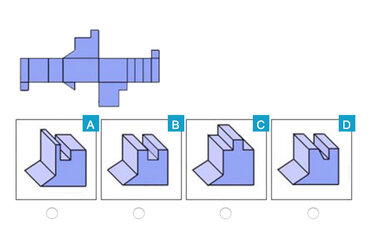The thought of people having no internal reflection, or being unable to reflect verbally internally is bizarre. Surely people are misunderstanding the question and thinking they mean ‘a voice all the time talking to you.’
I've concluded that most people simply don't think about thinking. This might be someone who is incapable of doing so or it might be someone with the capability. It's pretty easy to wind up arrogantly believing the way you think is simply what thinking is. Even when people do think about it, it's incredibly difficult to characterize it in a way that makes sense to anyone that doesn't think as you do. Just like you struggle to "clear your mind" it is probably just as much a struggle for someone without your abilities to really understand what it is like. It's somewhat comforting to at least believe it happens for these people to some degree but is simply misunderstood.
If I read in my first language I don’t ‘read out loud in my head’ becasue that is slooooow. I kind of snapshot half a page or so and it is like an immersive experience. BUT if I’m reading something in my second language (which I’m not good at) then I more often read aloud in my head, as I do if it’s technical info.
This makes me think of speed-reading and a lot of the common pitfalls. Some people are able to see and understand whole groups of words or chunks of text. Consciously reading it "aloud" internally is going to slow things down but these readers still "get" everything. I'd imagine you probably build a setting, have an idea of what a character looks like, and what they might sound like. For a lot of people they may be able to speed-read quickly but there is very little comprehension/understanding. They can usually get there by reading slower and taking the time to do the mental work that you do quicker. I'd imagine reading your second language "aloud" gives your noggin the chance to do the same work in the background.
One really enlightening experience for me was working with functionally illiterate people. They could "read" in that they would be able to say the words in this sentence aloud, but there would be
zero understanding of the meaning. They might get very simple and direct sentences. Nuance, conditionals, and things like lists of steps will be lost on them. However, if you take the time to actually go talk to them about the same exact thing they don't struggle to understand. Surprisingly many of them were a lot better at remembering one verbal encounter than I could ever be. I'm fairly certain for most of them it was a tragic circumstance that lead to their illiteracy, not an outright inability. If someone hasn't taken the time to consider how others think or never utilized these skills, they might find themselves in a similar situation.
I probably wouldn't have thought about this much if not for going hunting a lot growing up. You might have a book but it might be too dark to read it, you'd be potentially missing things in the field, and even the motion of turning pages might spook game. Otherwise, it's just you, your thoughts, a largely unchanging nature scene, and hours of still silence. Effectively staving off boredom pretty much required recognizing these skills and working those mental muscles. I think many of these people have never had an experience like that.
The people that can't visualize or have monologue function just fine, sometimes even better. It's not necessary and I think it's actually kind of detrimental.
I would agree only if you consider "function" to be a lot closer to surviving than thriving. Sure these people might be fine as tiktok scrolling consumers. But these skills are imperative for people trying to do actually do things. I'm not even talking about science or engineering. It can be as simple as troubleshooting computer problems, parking a car, or assembling a box/flat-pack furniture. They might be able to get there with guidance and instructions but would struggle without it. Here's some slightly tougher visualization than the apple:

This is pretty straightforward to figure out with visualization skills. Even if you cannot "assemble" the whole thing with no problem, being able to conceptualize the basic shape of most of it, and reason your way through the last bits should get you there. Absent these skills I'm not sure how you'd arrive at the right answer without cutting this out and physically folding it.

